This article was medically reviewed by Erik Kramer, DO, MPH and by wikiHow staff writer, Amy Bobinger. Dr. Erik Kramer is a Board-Certified Primary Care Physician at the University of Colorado. With over 15 years of experience, his clinical interests include obesity and weight management, diabetes care, and preventive care, as well as embracing a holistic approach to primary care. He received his Doctorate in Osteopathic Medicine (D.O.) from the Touro University Nevada College of Osteopathic Medicine and completed his residency at Central Maine Medical Center. Dr. Kramer is a Diplomate of the American Board of Obesity Medicine.
There are 21 references cited in this article, which can be found at the bottom of the page.
This article has been viewed 7,819 times.
Hashimoto's disease is an autoimmune condition that causes your body to attack your thyroid.[1] Hashimoto’s disease can initially cause high amounts of thyroid hormones, but it could potentially lead to hypothyroidism over time. Since your thyroid affects the way your body uses energy, Hashimoto syndrome can cause you to feel very fatigued, and it may lead to symptoms like weight gain and depression.[2] While there's no cure for Hashimoto's autoimmune disease, hormone replacement therapy is often very effective against hypothyroidism. You may also find some relief by following a special diet.
Steps
Adjusting Your Thyroid Hormones
-
1Schedule an appointment with your doctor to talk about your thyroid. The two main symptoms of Hashimoto's disease are hypothyroidism and a swollen thyroid, or goiter. If you've been suffering from unexplained fatigue, weight gain, muscle or joint soreness or stiffness, high blood cholesterol, or depression, there's a chance you could be suffering from hypothyroidism. To determine whether this is the case, as well as whether you have Hashimoto's syndrome, visit your doctor.
- If your doctor suspects that your thyroid isn't working properly, they'll likely schedule a thyroid hormone test to check your levels.
-
2Keep a log of any symptoms before your appointment. Try keeping a medical journal where you keep track of your symptoms each day, like when you feel tired or how you feel after each meal. Then, bring the journal with you to your next doctor's appointment so you can discuss your findings with your physician. It can also be helpful to write down a list of questions you might have for your doctor so you don't forget them during the appointment.[3]
- You can have Hashimoto's disease for years without ever being diagnosed because the symptoms may be minor or nonexistent, or they may even be attributed to another condition.
- If left untreated, Hashimoto's disease can lead to heart problems due to elevated cholesterol levels.[4]
Did You Know? Hashimoto's disease can affect anyone, but you may be more likely to develop it if you are a woman, if you're middle-aged, or if someone in your family has had a thyroid or other autoimmune disease. You may also be more likely to get Hashimoto's disease if you already have another autoimmune disease, like rheumatoid arthritis or lupus, or if you've been exposed to high levels of radiation.
Advertisement -
3Ask your doctor for a hormone test to check your thyroid function. If you believe that you may have a disorder that's affecting your thyroid, talk to your doctor about the problem. They'll likely recommend a test to measure your levels of the thyroid hormones free T4 and Total T3, as well as thyroid-stimulating hormone, or TSH. Typically, if you have hypothyroidism, your thyroid hormone levels will be low, but your TSH will be high.[5]
- A hormone test will often be the first test your doctor runs, but these tests will also be used periodically to monitor your hormone levels throughout your treatment.
- Your doctor may also run a test for thyroid peroxidase antibodies, or TPO. These antibodies may be present if you have Hashimoto's disease, but the test is not conclusive, so it's typically not the first one performed.
- The physician may also do an ultrasound of your thyroid to examine its size or rule out other causes of your thyroid issues, like thyroid nodules.[6]
Tip: Have your thyroid tested periodically if you've had thyroid surgery, if you've been treated with radioactive iodine or anti-thyroid medications, or you've had radiation therapy to your head, neck, or upper chest, as these may increase your risk of thyroid issues.[7]
-
4Continue regular hormone monitoring even if your levels are normal. In many cases, a Hashimoto's diagnosis doesn't require hormonal intervention, especially early on. If you have Hashimoto's disease but you do not have hypothyroidism, your doctor will likely recommend that you have periodic hormone tests done, but may not prescribe any further treatment unless your thyroid hormone levels change.[8]
- In these cases, you might find that following the Autoimmune Protocol diet (AIP) can help you effectively manage your symptoms.
-
5Begin hormone replacement therapy if your doctor prescribes it. Over time, Hashimoto's disease causes damage to your thyroid, eventually causing it to stop producing thyroid hormones altogether. Luckily, taking a daily dose of the synthetic thyroid hormone levothyroxine can balance your hormone levels, which can help alleviate any symptoms caused by hypothyroidism.[9]
- Talk to your doctor about any other medications or supplements you take, including cholesterol medicine, antacids, and iron or calcium supplements, as they may affect levothyroxine.
- Levothyroxine is an oral medication, and you'll typically be directed to take it in the morning before breakfast. Your doctor will instruct you how long to wait after taking your medication before you should eat. Usually, you can take the levothyroxine 1 hour before eating or 3 hours afterward for best absorption.[10]
Did You Know? Sometimes hormones extracted from pigs are used in Hashimoto thyroid disease treatment. However, many doctors do not prescribe them, because although these medications are labeled as 'natural,' they are not necessarily compatible with the human body. Also, there are some concerns about the consistency of the products derived from this product.[11]
-
6Do not discontinue your medication. Unfortunately, there is no cure for Hashimoto's disease. Once you start hormone replacement therapy, you'll typically need to continue taking the medication for the rest of your life. Do not skip doses or stop taking your Hashimoto's disease medication or your symptoms will return.[12]
- If you have any medical condition, you should tell your doctor if you become pregnant and if you have hypothyroidism. However, levothyroxine is safe to take during pregnancy, and it can help prevent complications for mother and baby due to hypothyroidism. You will need to commonly increase your thyroid medication dosing and monitor your TSH lab throughout your pregnancy.[13]
-
7Keep all of your follow-up appointments if you're on hormone therapy. Your TSH levels will need to be checked once you've been taking your medication for 6-8 weeks and in a steady state. You'll also need to be tested after 6-8 any time your doctor adjusts your medications, to ensure you are taking the correct dose. Even after your medication is stabilized, you'll still need to be tested about once a year, since your dosing needs may change.[14]
- Taking too high of a dose of levothyroxine can accelerate bone loss and affect your heart's rhythm. To avoid this, typically your doctor will start with a smaller dose of medication and gradually increase it until they discover the right dose for you.
- Don’t have your TSH checked while you’re experiencing acute illness or any stressful medical episodes since the results won’t be as accurate.
-
8Undergo surgery to remove a goiter if it interferes with swallowing. A goiter is usually not uncomfortable, but in some cases, it might lead to a feeling of fullness or tightness in your throat, and occasionally it may interfere with your ability to swallow. If that happens, your doctor might recommend that you have surgery to remove part or all of the goiter.[15]
- Due to the risk of complications, your doctor typically will not recommend removing a goiter if it is not affecting your health.
- In rare cases, your doctor may recommend removing your thyroid altogether, such as if you're having trouble swallowing or hormone replacement therapy isn't working for you. However, this is not a common treatment for Hashimoto's disease.[16]
-
9Call for immediate medical care if you are extremely lethargic. In rare cases, if Hashimoto's disease is left untreated, it can lead to a life-threatening complication called myxedema. This starts out as extreme fatigue, followed by lethargy, and eventually the person will slip into a coma. This condition requires emergency medical treatment. If you suspect you have Hashimoto's disease and you start feeling extremely exhausted for no reason, to the point that it's difficult to carry out normal activities like walking or carrying on a conversation, have someone drive you to the hospital.[17]
- Typically this is caused by some kind of stress to your body, like an infection, the use of sedatives, or exposure to extreme cold.
Managing Your Symptoms through Your Diet
-
1Eat a variety of fruits and vegetables at every meal. Getting plenty of vitamins and minerals is essential to any diet. However, if you're struggling with symptoms of hypothyroidism, including fatigue and depression, eating an array of brightly-colored foods can help give your body a boost that may help you feel a little more energized.[18]
- Differently-colored fruits and vegetables contain different vitamins, so try to mix and match as many colors as you can each day.
- For instance, you might try eating a salad made of sliced cucumber, diced tomatoes, and fresh basil with your lunch. Then, at dinner, have a serving of wilted spinach and roasted carrots.
-
2Opt for high-fiber carbohydrates. You don't have to cut out carbs entirely to be healthy. Foods like whole grains, beans, and legumes all contain complex carbohydrates, but they also are rich in fiber, which helps promote heart health.[19]
- These foods can also help you manage your blood sugar and your weight, which can be harder to control when you have hypothyroidism.
- Avoid simple, processed carbohydrates like white bread, desserts, and chips.
-
3Stick to lean proteins for a healthy energy boost. Proteins are essential to a healthy diet, but it's best to opt for lean choices so you're not adding unnecessary saturated fat to your diet. As you plan your meals for the week, try to include lean proteins like chicken, turkey, fish, eggs, and tofu.[20]
- Beans and nuts are also a good source of protein.
- If you enjoy red meat, you can still have it, but do so in moderation. Lean proteins should be included in the majority of your meals.
-
4Choose healthy fat sources to get the most benefit from your diet. Healthy fats can help reduce the inflammation affecting your thyroid, leading to hypothyroidism. Try snacking on nuts and avocados, enjoy fatty fish like salmon, or mix flaxseed or chia seeds into your meals to add healthy fat to your meals.[21]
- Avoid unhealthy saturated fats, like full-fat dairy products, butter, and lard.
-
5Talk to your doctor about selenium or vitamin D supplements. Selenium may help reduce the antibodies that are created by Hashimoto's disease. In addition, people with Hashimoto's disease are often found to be low in vitamin D. However, don't start taking any new supplements before you talk to your doctor, especially if you're on hormone replacement therapy.[22]
- Your doctor might recommend that you eat certain foods, like Brazil nuts, to get more selenium in your diet. However, it's difficult to get enough vitamin D from food alone, so they may recommend a supplement for that.
-
6Cut gluten out of your diet if you have celiac disease. If you have celiac disease, or gluten intolerance, then eating gluten triggers an immune response. If you also have Hashimoto's disease, then this immune response will likely worsen your hypothyroidism. However, even if you're able to tolerate gluten, there's a chance that gluten may still trigger that response, so it may help to eliminate gluten from your diet.[23]
- You may be more likely to have Hashimoto's disease if you have another autoimmune disorder, such as celiac disease.[24]
-
7Avoid cruciferous vegetables and soy if they worsen your thyroid condition. Certain foods, known as goitrogens, are thought to have an adverse effect on thyroid functions. These include cruciferous veggies like broccoli, cabbage, and kale, along with soy products. If you find that you have low energy after eating these foods, you might try cutting them from your diet.[25]
- However, since these foods are very healthy, if you don't find that eliminating them makes much of a difference in your energy, it's probably best to keep eating them!
-
8Stay away from foods with a lot of iodine. Having too much iodine in your diet can make hypothyroidism worse. If you live in the United States or another developed country, many of the foods you already eat are fortified with iodine, so you may need to take care not to eat foods rich in iodine to avoid getting too much. For instance, avoid eating kelp, dulse, or other types of seaweed, as these have high iodine levels.[26]
- Do not take iodine supplements if you have Hashimoto's disease.
- Some cough syrups also have high levels of iodine, so ask your doctor before taking any new medications.
-
9Do not expect diet alone to treat or cure Hashimoto's. If you have hypothyroidism, the only medically recognized treatment is hormone replacement therapy. However, following a healthy diet can help you reduce inflammation and antibodies, and you can lose weight, which is good for your overall health.[27]
- There is no single Hashimoto diet that will ease your symptoms. However, having a healthier lifestyle overall may help you manage your Hashimoto's more effectively.
- Talk to your doctor before you make any major changes to your diet.[28]
References
- ↑ https://www.thyroid.org/hashimotos-thyroiditis/
- ↑ https://www.niddk.nih.gov/health-information/endocrine-diseases/hashimotos-disease
- ↑ https://www.endocrineweb.com/why-you-should-keep-symptom-journal
- ↑ https://www.niddk.nih.gov/health-information/endocrine-diseases/hashimotos-disease
- ↑ https://medlineplus.gov/ency/article/000371.htm
- ↑ https://www.niddk.nih.gov/health-information/endocrine-diseases/hashimotos-disease
- ↑ https://www.mayoclinic.org/diseases-conditions/hashimotos-disease/symptoms-causes/syc-20351855
- ↑ https://www.health.harvard.edu/blog/is-there-a-role-for-surgery-in-treating-hashimotos-thyroiditis-2019081217443
- ↑ https://www.womenshealth.gov/a-z-topics/hashimotos-disease
- ↑ https://www.niddk.nih.gov/health-information/endocrine-diseases/hashimotos-disease
- ↑ https://newsnetwork.mayoclinic.org/discussion/mayo-clinic-q-and-a-hashimotos-thyroiditis-will-diet-alone-help/
- ↑ https://www.betterhealth.vic.gov.au/health/ConditionsAndTreatments/thyroid-hashimotos-disease
- ↑ https://www.niddk.nih.gov/health-information/endocrine-diseases/hashimotos-disease
- ↑ https://www.mayoclinic.org/diseases-conditions/hashimotos-disease/diagnosis-treatment/drc-20351860
- ↑ https://www.health.harvard.edu/blog/is-there-a-role-for-surgery-in-treating-hashimotos-thyroiditis-2019081217443
- ↑ https://www.health.harvard.edu/blog/is-there-a-role-for-surgery-in-treating-hashimotos-thyroiditis-2019081217443
- ↑ https://www.endocrineweb.com/conditions/hypothyroidism/myxedema-coma-hypothyroidism
- ↑ https://www.btf-thyroid.org/thyroid-and-diet-factsheet
- ↑ https://www.btf-thyroid.org/thyroid-and-diet-factsheet
- ↑ https://www.helpguide.org/articles/healthy-eating/choosing-healthy-protein.htm/
- ↑ https://www.hsph.harvard.edu/nutritionsource/what-should-you-eat/fats-and-cholesterol/
- ↑ https://health.clevelandclinic.org/hashimotos-thyroiditis-thyroid-disease-condition/
- ↑ https://www.ncbi.nlm.nih.gov/pubmed/30060266
- ↑ https://www.frontiersin.org/articles/10.3389/fendo.2018.00540/full
- ↑ https://www.ncbi.nlm.nih.gov/pmc/articles/PMC4740614/
- ↑ https://www.thyroid.org/low-iodine-diet/
- ↑ https://www.ncbi.nlm.nih.gov/pmc/articles/PMC5028075/
- ↑ https://newsnetwork.mayoclinic.org/discussion/mayo-clinic-q-and-a-hashimotos-thyroiditis-will-diet-alone-help/
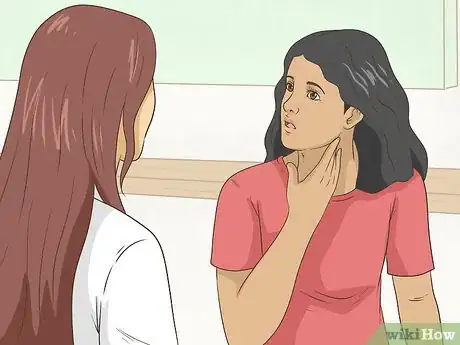

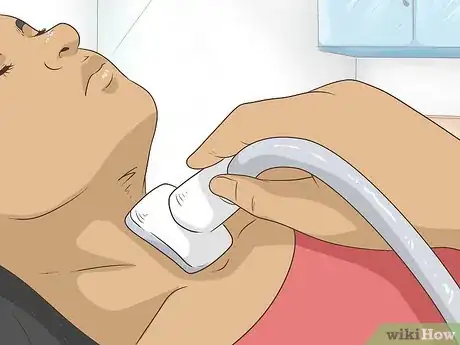
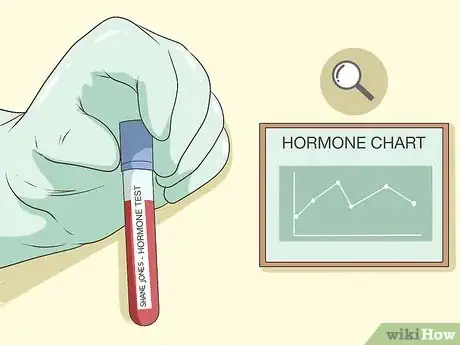



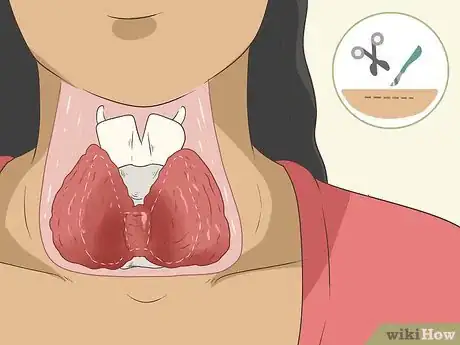
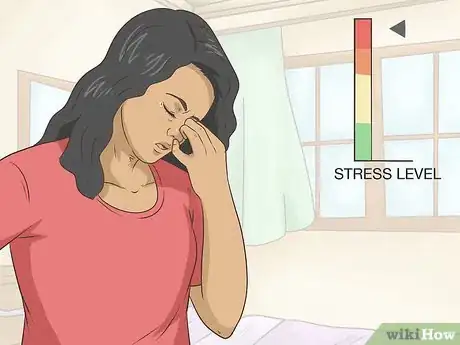

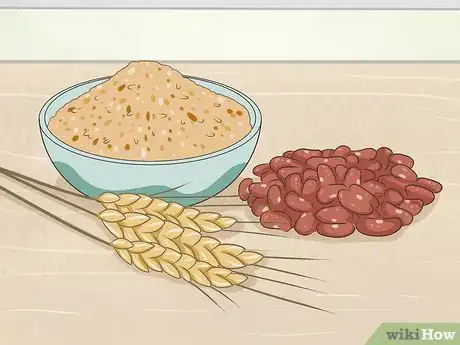



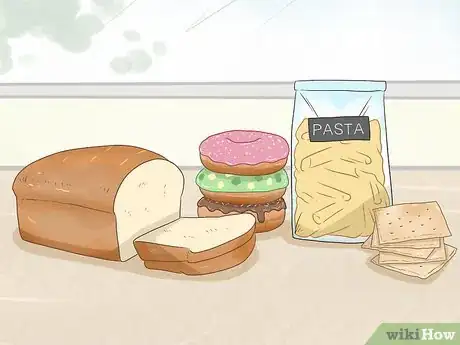
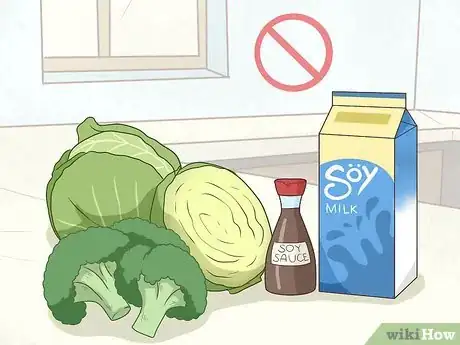
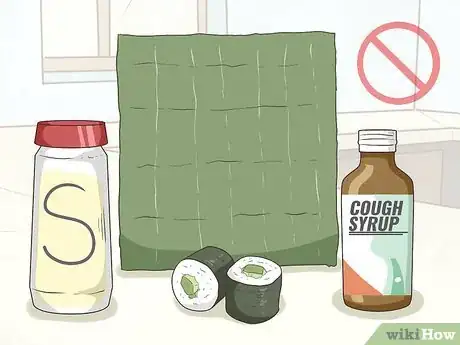




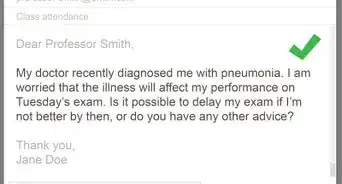
-Step-14-Version-2.webp)
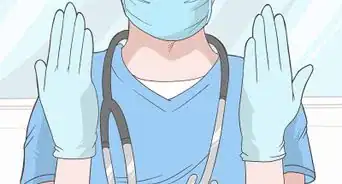





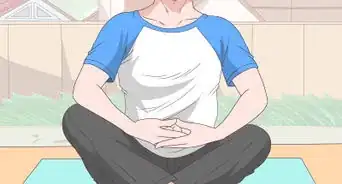
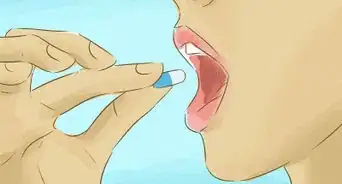











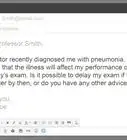




































Medical Disclaimer
The content of this article is not intended to be a substitute for professional medical advice, examination, diagnosis, or treatment. You should always contact your doctor or other qualified healthcare professional before starting, changing, or stopping any kind of health treatment.
Read More...